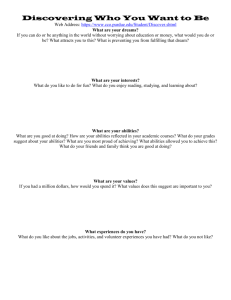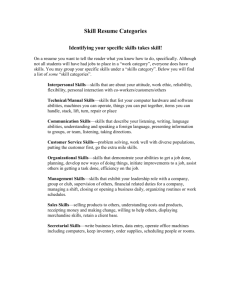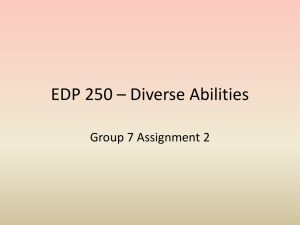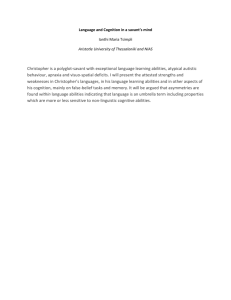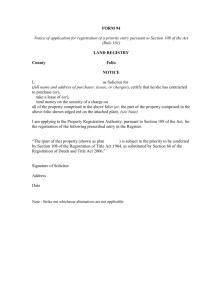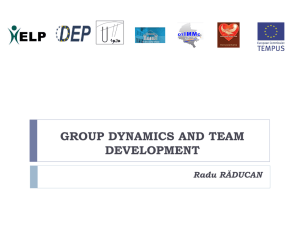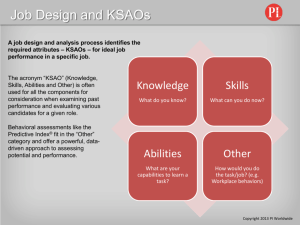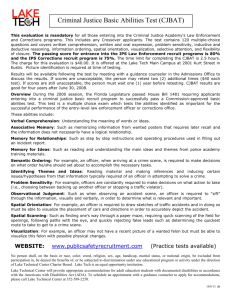General Purpose packages : You will learn how to use software
advertisement
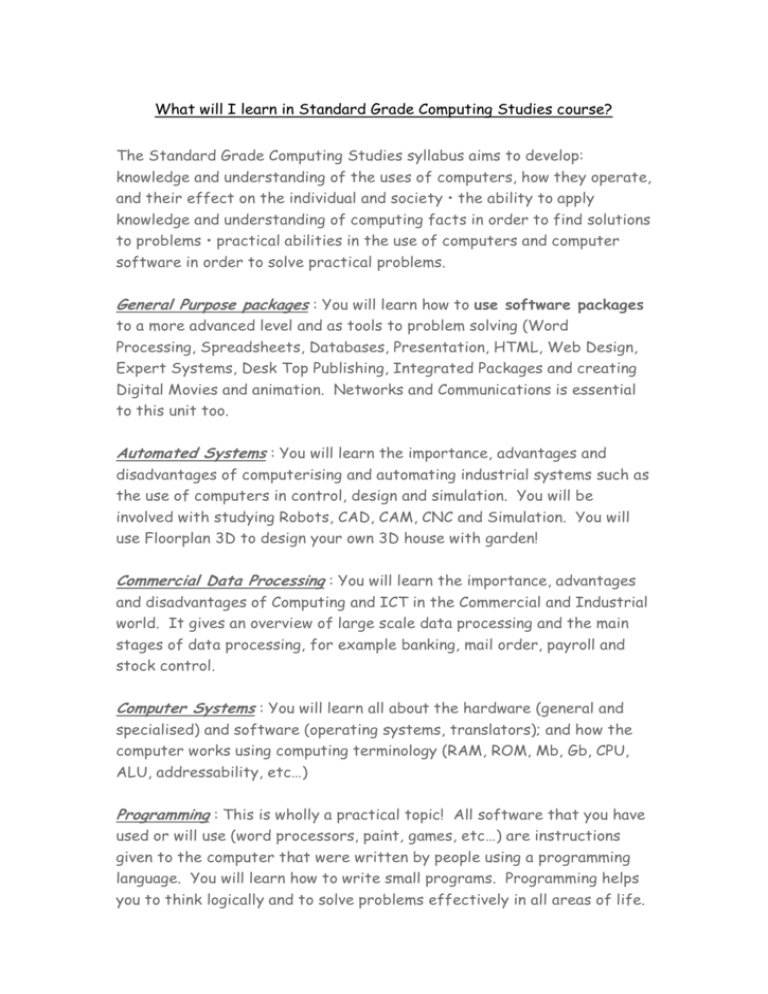
What will I learn in Standard Grade Computing Studies course? The Standard Grade Computing Studies syllabus aims to develop: knowledge and understanding of the uses of computers, how they operate, and their effect on the individual and society • the ability to apply knowledge and understanding of computing facts in order to find solutions to problems • practical abilities in the use of computers and computer software in order to solve practical problems. General Purpose packages : You will learn how to use software packages to a more advanced level and as tools to problem solving (Word Processing, Spreadsheets, Databases, Presentation, HTML, Web Design, Expert Systems, Desk Top Publishing, Integrated Packages and creating Digital Movies and animation. Networks and Communications is essential to this unit too. Automated Systems : You will learn the importance, advantages and disadvantages of computerising and automating industrial systems such as the use of computers in control, design and simulation. You will be involved with studying Robots, CAD, CAM, CNC and Simulation. You will use Floorplan 3D to design your own 3D house with garden! Commercial Data Processing : You will learn the importance, advantages and disadvantages of Computing and ICT in the Commercial and Industrial world. It gives an overview of large scale data processing and the main stages of data processing, for example banking, mail order, payroll and stock control. Computer Systems : You will learn all about the hardware (general and specialised) and software (operating systems, translators); and how the computer works using computing terminology (RAM, ROM, Mb, Gb, CPU, ALU, addressability, etc…) Programming : This is wholly a practical topic! All software that you have used or will use (word processors, paint, games, etc…) are instructions given to the computer that were written by people using a programming language. You will learn how to write small programs. Programming helps you to think logically and to solve problems effectively in all areas of life. You break down a problem into smaller elements; design a solution; implement it; and then evaluate it Assessments/ Folio/ Practical Abilities (PA) In any job (and subject) you do, communication skills are very important. All these Practical Abilities will help you to solve problems and communicate your analysis of the problem; your design of your solution; and your evaluation of the solution. So, although you may be a whiz kid at doing practical work, you still have to spend a great deal of time report writing in all of the 5 folio tasks. Marks are allocated to analysis, design, implementation and evaluation, which are all presented as a report! The 5 FOLIO tasks are as follows :2 Non-Programming practical abilities 2 Programming practical abilities 1 Project. Theory Assessments You will be given 6 End of Topic Tests (3 for General Purpose packages; 1 for Automated Systems; 1 for Commercial Data Processing; and 1 for Computer Systems). S3 EXAMS (MAY) S4 PRELIMS (NOVEMBER) FINAL EXAMS JUNE
